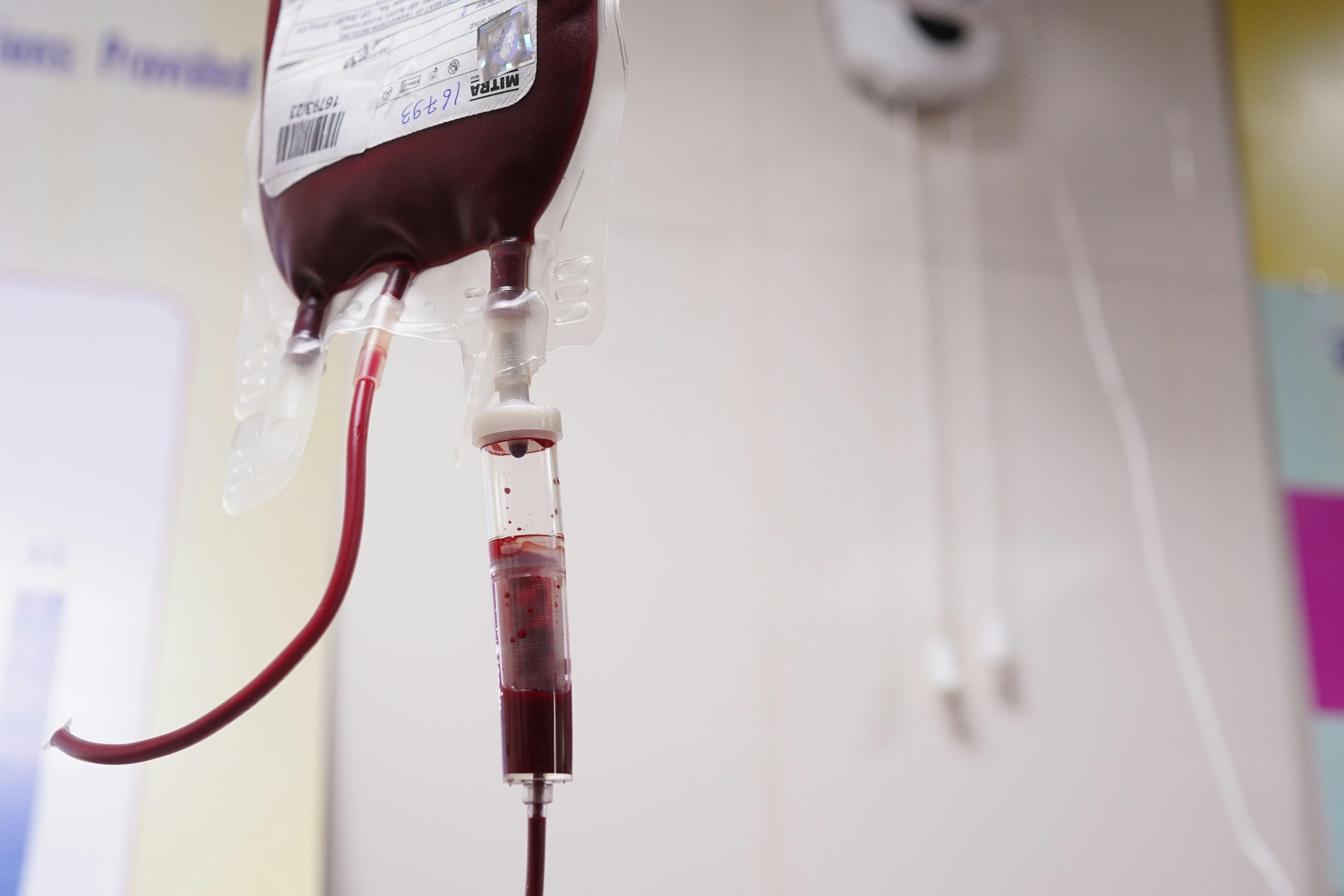Our Services
Blood Transfusions
Many haematological conditions cause under-production of blood cells, which can be treated with blood transfusions. Your haematologist will discuss your options with you, and recommend a plan for monitoring your blood counts and arranging transfusions (as a day patient in a hospital setting) as needed.
All blood for transfusion in Australia is supplied by the Australian Red Cross. Australia's modern blood supply is considered extremely safe, and the risk of infection or serious reaction is tiny.
How often you need to be transfused depends on the condition, and the severity of the condition.
Red blood cells (RBC)
Red blood cells are the most common blood cells in the body, and are responsible for carrying oxygen throughout the body.
People can require blood transfusions as infrequently as once every few months, and as often as once every week.
Platelets
Platelets are responsible for one of the early stages of blood clotting. Our bodies can tolerate a surprisingly low number of platelets, and transfusions of platelets are not usually necessary. However, in some scenarios, platelets may be needed to prevent bleeding. Unlike red blood cells, transfused platelets only last a few days in the body, and the transfusions usually are more frequent than red blood cells.
Immunoglobulins (IVIg)
Immunoglobulins are antibodies that help fight off infections. They are usually produced by the body's own immune system. However, in some conditions like myeloma and lymphoma, your production of immunoglobulins can be reduced, and your risk of infection (particularly skin and chest infections) can be increased.
Your haematologist may recommend a regular infusion of immunoglobulin infusions to reduce your risk of infection.
These are given as a day patient, once every four weeks. Produced as a concentrated and purified solution from numerous blood and plasma donations, they are infused slowly through a cannula (drip).
Most people do not have any side effects from these infusions, although occasionally a reaction with temperatures or rashes can occur. These are usually mild and easily managed.
